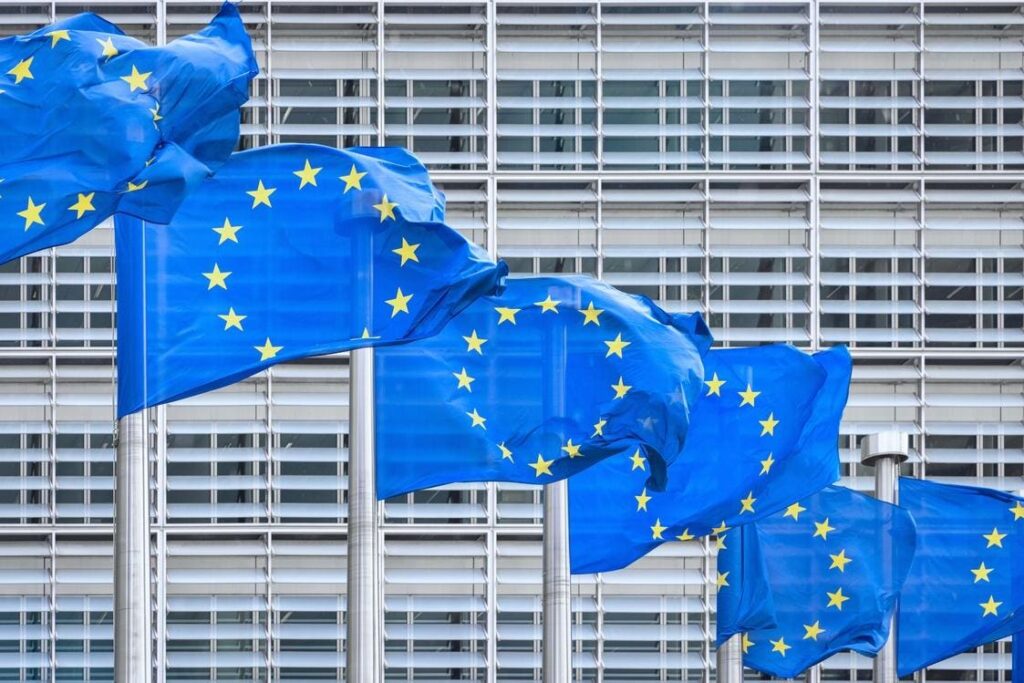According to a leaked draft, the European Commission is considering a new proposal to delay the implementation of specific requirements found in the European Sustainability Reporting Standards. The delay comes as the European Parliament debates overall reductions to the Corporate Sustainability Reporting Directive. The proposal expands existing delays to the CSRD to include those already subject to wave one reporting, with additional exemptions for companies with fewer than 750 employees. Expect a quick passage of the new delays.
Adopted in 2022, the CSRD imposed sustainability reporting requirements on businesses operating in the EU. Reporting requirements are set to go into effect in waves, starting with large publicly traded companies, then expanding annually to eventually including small and medium-sized enterprises. Wave one reporting starts in 2025, for FY 2024.
However, political push back on the CSRD, the Corporate Sustainability Due Diligence Directive, and other European Green Deal directives is resulting in a reevaluation of these proposals and their broader impact on business. The Omnibus Simplification Package, proposed by the European Commission, is currently being debated in the Parliament. If successful, the proposal will significantly reduce the number of businesses required to file sustainability reports and limit the impact on SMEs.
While that package is debated, the EU passed a “stop the clock” directive delaying the implementation of the CSRD and CSDDD for most companies. However, the stop the clock did not apply to large publicly traded companies already subject to wave one reporting requirements.
Wave one was not originally included in the “stop the clock” directive because it was assumed the changes to the CSRD would not impact them. However, as the debate unfolds, some companies in wave one will be exempt from from all or part of the CSRD if the latest proposal is adopted. As a result, the Commission is considering an additional delay of some ESRS, with companies with fewer than 750 employees facing additional exemptions.
The stated justification for the changes to the CSRD are noteworthy. The draft states:
“The CSRD is now being implemented in a new and difficult context. Russia’s war of aggression against Ukraine has driven up energy prices for EU undertakings. Trade tensions are rising as the geopolitical landscape continues to shift. The different approach undertaken by some other major jurisdictions regarding the regulation of corporate sustainability reporting and due diligence raises questions about the effects of these laws on the competitive positioning of EU companies. The ability of the Union to preserve and protect its values depends amongst other things on the capacity of its economy to adapt and compete in an unstable and sometimes hostile geopolitical context.”
The draft proposes to delay certain ESRS, including anticipated financial effects, for three years. Companies with fewer than 750 employees will also be exempt from Scope 3 (ESRS E1), biodiversity and ecosystems (ESRS E4), workers in the value chain (ESRS S2), affected communities (ESRS S3), and consumers and end users (ESRS S4).
The draft further states, “By the time that undertakings have to report for financial year 2027, it is expected that the overall revision and simplification of ESRS will have been completed, and that the Directive amending the substantive provisions of the CSRD, including the provisions setting out which undertakings are subject to the reporting requirements, will have entered into force.”
While the proposal has yet to be officially adopted by the Commission, comments made in the Parliament indicate they are expecting it soon. As this is a delegated act, it will not require a vote of the Council or Parliament. However, once adopted by the Commission, the Parliament or Council typically have two months to object.
The delay is an expected part of the simplification package and likely to face little resistance. The tide is shifting on sustainability reporting in the European Union and advocates are struggling to hold onto prior gains. Expect the debates in the Parliament to continue to escalate.
Read the full article here

